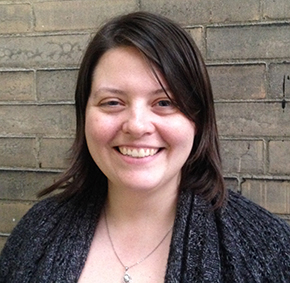RHAP’s Reproductive Health & Advocacy Fellowship: Developing Physician Advocates
RHAP’s Reproductive Health and Advocacy Fellowship aims to develop clinical leaders who will promote and teach full-spectrum women’s reproductive healthcare within family medicine. One of the way they develop these skills is through regional and national advocacy. Our Fellow, Zahra Virani, MD was recently part of a group of physicians who traveled to Washington, DC as part of All Above All’s efforts to advocate against the Hyde Amendment. And Dr. Carrie Pierce (pictured left) went to Albany, New York to advocate for ensuring quality primary care in federally qualified health centers.
Dr. Pierce describes what her advocacy experience meant to her.
’What do you think, Dr. Pierce?’ was something I heard over and over throughout my meetings with legislators. I was among the least experienced advocates in my group lobbying New York legislators. I was with heads of social work departments, senior executives, and a host of others. But as the senior clinician in the room, inevitably all eyes would turn to me for a proclamation on the matters at hand.
This was not something I’d experienced before. As a family physician specializing in full-scope reproductive healthcare, I obviously have to be politically aware. There are so many policies and cultural norms that make it harder to provide my patients with the best care, the care they deserve, that I have to know what’s going on in the world around me. But my recent day in the state capitol with the Community Health Care Association of New York (CHCANYS) was my first experience speaking directly and in person with my elected representatives. I expected to take the backseat, more of an observational role, learning this process from my more experienced colleagues. But by virtue of being a clinician, someone with MD after my name, I had an instant aura of authority.
I was pleasantly surprised to find how easily I fell into this role. I was able to speak convincingly to my legislators about the importance of maintaining funding for school-based health centers, and opposing a proposed state budget with a 15% cut and a switch to a block-grant system. There was no formal training in medical school or residency to do this kind of thing. I work on my patients’ behalf every day, and I like to think I’m an advocate for them, but this was the first time I was truly advocating. I’m still shocked at the ease of the transition. I could instantly think of patient examples for how this would decrease quality (and likely increase cost) of care. While I can’t know for sure yet, I felt like these discussions were actually productive, that people were listening, that they might take my perspective into account when making governing decisions. It was that simple.
I got such energy from this work. After this introductory experience, I know I’ll be much more likely to keep advocating and agitating for my patients, either through meetings with legislators, letters to members of congress, or op-eds to medical journals.

